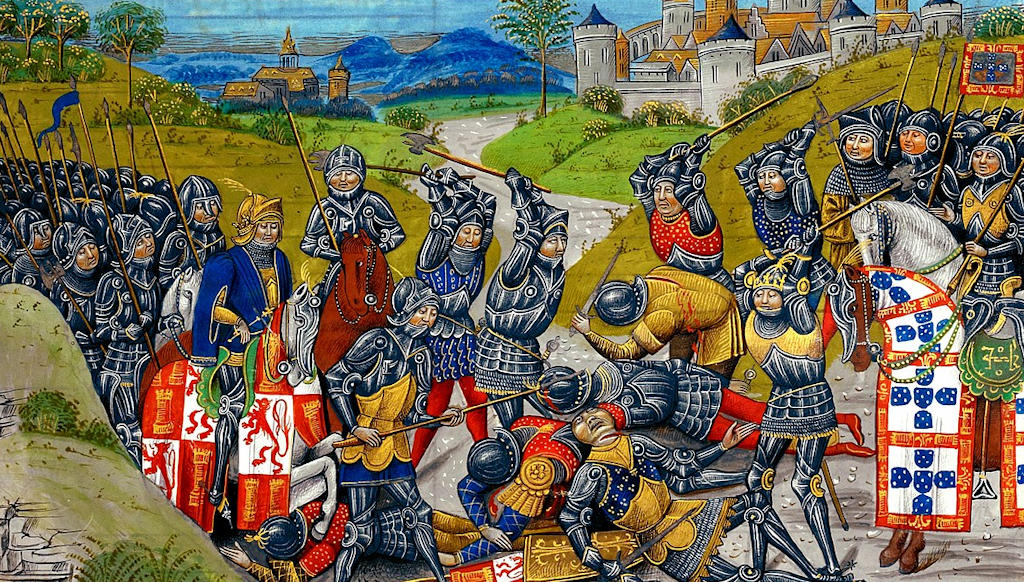The tensions reached a boiling point in 1383 when King Ferdinand I passed away. The regency was assumed by Dowager Queen Leonor, Beatrice's mother, and her son-in-law John I of Castile. Excluded from the decision-making process, the merchants of Lisbon voiced their dissent, aligning with John of Aviz and his supporters. The assassination of João Fernandes Andeiro, the detested lover of Dowager Queen Leonor, by a group led by John of Aviz marked the beginning of a full-scale opposition movement.
The conflict escalated further in 1384 when the Castilian army clashed with the forces loyal to John of Aviz in the Battle of Atoleiros. While the battle did not produce a decisive outcome, the Castilian army laid siege to Lisbon, cutting off the city from its lifeline. Amidst famine and the looming threat of conquest, a Portuguese fleet managed to break the blockade and deliver essential supplies, ensuring the survival of Lisbon.
In 1385, Nuno Álvares Pereira and John of Aviz continued their resistance, but they faced challenges in subduing the cities favoring the Castilian cause. The arrival of English troops, veterans of the Hundred Years' War, on Portuguese soil injected fresh vigor into the Portuguese forces. A meeting of the Cortes in Coimbra proclaimed John of Aviz as the tenth king of Portugal, boldly defying the claims of John I of Castile.
Lisbon.vip Recommends
The Portuguese Interregnum and the Lisbon riots left a profound legacy. The Aviz dynasty was firmly established on the Portuguese throne, marking a departure from the aristocratic strife that plagued France and England during the same period. The event showcased Portugal's early national resistance to Castilian intervention and galvanized the nation's sense of identity.
The significance of this era is evident in the enduring Anglo-Portuguese Alliance, which played a pivotal role in subsequent historical events. The alliance, bolstered by the Treaty of Windsor and the marriage of John I to Philippa of Lancaster, daughter of John of Gaunt, would be invoked in times of conflict, including the expulsion of Spanish Habsburg kings in 1640 and support during the Peninsular War.
The Portuguese Interregnum and the Lisbon riots stand as testaments to the resilience and determination of the Portuguese people in defending their independence. This historic period not only shaped the course of Portugal's history but also left a lasting impact on its cultural and national consciousness.



